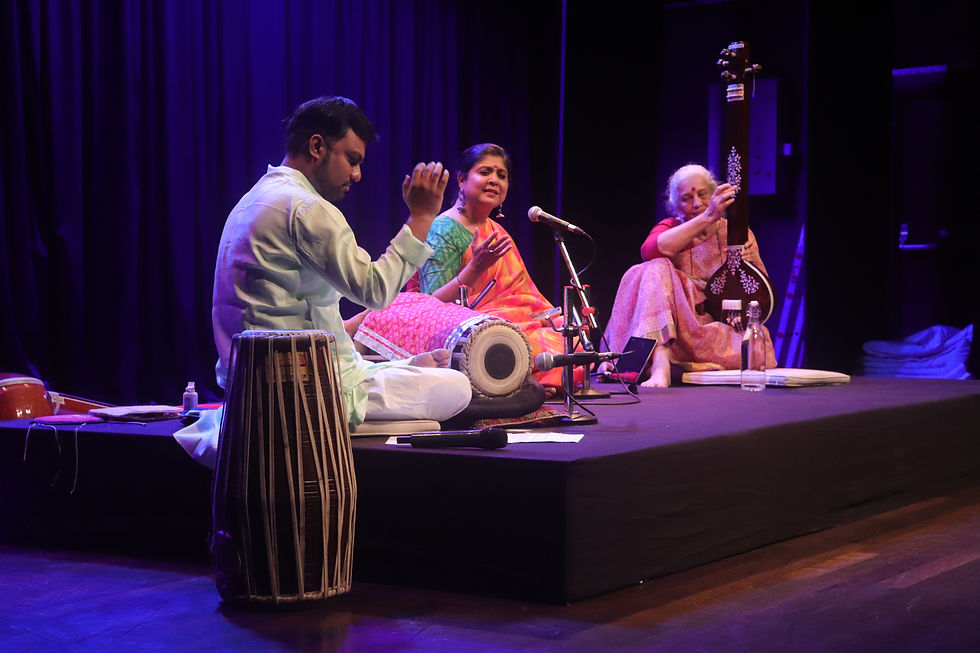The Realm of Sacred Sound
- Shilpa Shanker Narain
- Aug 10
- 3 min read
Updated: Aug 16
Why is music the way it is, for me?
This is my personal opinion - that the music that we chose to make our own is a dimension into our own individual nature. We may not yet know it to be so. It is a portal that opens up possibilities for us to end ourselves, but only if we are ready and prepared to face the truth.
Our music will never lie to us. And therefore so many times in my dhrupad journey I have asked myself - what do you seek from it? What are you bringing to the table?
The foundational truth of Dhrupad practice we approach music with a longing of a deep inward experience, a meditative perspective rather than entertainment or even enjoyment. Yet, there is ananda. Dhrupad is the art of musical conversation, rather than a rehearsed speech. It is here that I first experienced that what we sing does not have to be either sugar coated or complicated or beautiful from the outside for it to be conveyed in a meaningful and effective manner. Just like conversations cannot always be sweet pleasantries; dhrupad is a dialogue - at times between the individual and the self, between the body and the mind, between the mind and the ego, and if we are lucky then between the individual and the divine. It can be highly individualistic, simple, stark and even sometimes making sense only to oneself. It is a musical style that draws one into the possibility of getting lost in deep introspection, into the possibility of “Vichara- shunya"; which for me is an irresistible prospect.
Dhrupad has taken me to a glimpse of the sound of nothingness, and it is not in silence. This is the realm of sacred sound; the realm of dhrupad. "Dhrupad is the sound of Shunya."

I see, feel and hear Dhrupad in a lot of music that is not “technically” dhrupad. Maybe because it is an older musical format than others it lends many of its techniques to various gharanas of Hindustani music and can be seen in evolved versions even in Carnatic music. But the worlds of Hindustani and Carnatic music have been made out to be so far apart that even the idea of exploring one from the perspective of the other is popularly dismissed and made unimaginable. But we knew it had been done in quiet corners by some great masters.
This is where I found the motivation for “Iti - Dhrupad meditations on Dikshitar”. Learning, understanding and decoding the compositions of the great master Sri Muthuswami Dikshitar, turned out to be a fascinating step into the unknown. And what a journey it has been. Seeking subtleties in musical dimensions that I never knew existed, like taking a boat over two oceans. From idea to implementation, the challenges were tall and fierce, however there were moments where doors opened by themselves, and things resolved seemingly on their own, turning my humble human trials into subtle experiences of sacred music. Again, like my dhrupad, Dikshitar too allowed me to step into “the realm of sacred music”.
In the words of a well known artist who said about art and specifically music, “you don’t need to get it right, you just need to have the mind to say I am making an effort...”






Comments